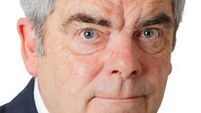New medical council ethics guide "deeply flawed” -Bishop Doran

Bishop Kevin Doran
The new ethics guide of the Irish Medical Council “is deeply flawed”, the Bishop of Elphin Kevin Doran has said. The medical council is the regulatory body for the medical profession in Ireland.
Bishop Doran is also chairperson of the Council for Life of the Irish Catholic Bishops’ Conference.
Bishop Doran said that the medical council recently issued a new 9th edition of the Guide to Professional Conduct and Ethics.
“This is a very important document for medical doctors, because it is against this code that their professional conduct and practice is measured. Unfortunately, there are numerous defects in the new edition of the guide,” he said in a statement.
He said that the new guide has “dropped” the statement ‘You must not take part in the deliberate killing of a patient’ from the ‘End of Life Care’ section. The phrase had been included in the previous 8th edition published in 2016, he said.
“I find myself wondering if this is an oversight, or is it the case that the medical council has now decided that it is acceptable for doctors to take part in the deliberate killing of a patient?” he said. “Even if assisted suicide were to be legalised, for example, that of itself would never make the killing of patients ethical.” He added that the sections on assisted human reproduction and abortion, which were in the 8th edition of the guide, “have disappeared”.
“This would seem to suggest that the medical council does not see these very significant areas of activity as involving any ethical questions or risks. Is this simply because the law in these areas has changed. Have actions which were previously unethical, and quite simply ‘bad medicine’, suddenly become ethical because they are now legal?” he asked.
“Under the heading of 'Conscientious Objection', I note that the guide reflects recent legislation on abortion, in that it requires doctors to ‘make such arrangements as may be necessary to enable the patient to obtain the required treatment’. I am not sure how it makes sense ethically to require a doctor to assist a patient to access a procedure which the doctor, herself or himself, regards as unethical.” He said that these matters not only impact on doctors, but also “the common good of our society by radically redefining what is ‘good’ for us all.
“I have written to the president of the medical council seeking clarification, but my letter has received neither a reply nor even an acknowledgement.”





